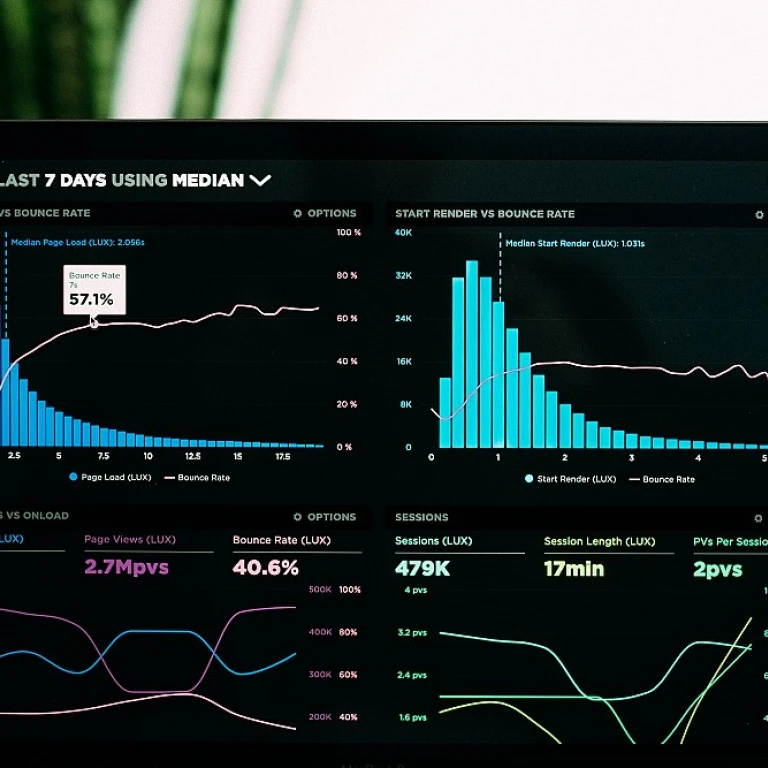
The Balancing Act: Data Driven Strategies in AI SEO While Upholding User Privacy
Harmonizing SEO Innovation with Privacy Protection
The advent of AI-driven search engine optimization (SEO) has revolutionized how we approach our digital marketing strategies, offering unprecedented efficiency and precision. SEO keywords have become vital to ensuring visibility in the competitive digital landscape. However, as more robust and sophisticated AI tools harness vast amounts of user data to fine-tune SEO efforts, a critical question arises about the protection of user privacy. Implementing data-driven strategies in AI SEO is akin to balancing on a tightrope, where one must maintain a delicate equilibrium between leveraging user data for SEO success and respecting individual privacy.
AI SEO: A Double-Edged Sword for User Data
AI-driven SEO brings to the table advanced analytical capabilities that can process and conceptualize huge datasets, enabling marketers to identify patterns and optimize their content accordingly. SEO keywords, those critical components that boost website visibility, now surface through the insights provided by machine learning algorithms. However, this deep data integration means that personal information is often the fuel that powers the AI's learning engine.
In navigating the labyrinth of data privacy within AI-enhanced SEO strategies, one must understand the implications of such technologies. User consent, data anonymization, and the application of rigid privacy standards become paramount in upholding trust and integrity. With proper oversight, AI can shape content around user behavior without crossing into invasive territory, ensuring that while SEO keywords draw in audiences, their private information remains secure.
The Vanguard of Data Privacy in SEO Practices
Responsible AI SEO entails the use of sophisticated tools that adhere to ethical standards while analytically deploying SEO keywords to capture market interest. Companies and SEO professionals must become the vanguard of data privacy, committing to practices that safeguard user information while still delivering the content relevance that search engines prioritize.
Indeed, as AI continues to redefine the capabilities within SEO, incorporating ethics and privacy into the core of business practices isn't just ideal – it's essential. Search engines themselves are beginning to recognize and reward transparency and privacy-conscious methods. By committing to these standards, businesses not only align with user expectations but also carve out a competitive advantage in the increasingly AI-centric world of SEO.
For a further deep dive into the intricacies of data privacy and AI-SEO synergy, explore the insights on data privacy’s role in shaping AI-enhanced SEO.
Ethical Lines in the Virtual Sand: Drawing Boundaries for AI Use in SEO
The Interplay of Ethics and Artificial Intelligence in SEO
In today's advanced digital landscape, Artificial Intelligence (AI) has become a cornerstone in sculpting powerful search engine optimization (SEO) strategies. However, as algorithms become more intelligent, the ethical use of data in AI-driven SEO becomes a staple discussion amongst marketers, developers, and privacy advocates. AI has the unparalleled potential to analyse massive datasets to inform SEO tactics, yet this ability walks a fine line with data privacy concerns.
Responsible AI use in SEO hinges on respecting user data while optimizing content visibility online. Ethical AI SEO strategies should prioritize both efficacy and integrity. Let's delve into the ethical considerations that should guide the application of AI in SEO and how professionals can draw firm ethical lines in their practices.
Implementing Transparent AI Practices in SEO
Transparency is the linchpin of ethical AI SEO. Search Engine Marketers and businesses need to be candid about how they gather and use data. The method of data collection should be explicit, ensuring users are well informed and able to give informed consent. Moreover, transparency extends to the algorithms themselves; companies should be able to explain how their AI systems make decisions, avoiding the infamous 'black box' scenario where decision-making processes are obscure and unaccountable.
Respecting User Privacy in the Pursuit of SEO Excellence
Optimizing for the best SEO keywords doesn't grant the liberty to compromise user privacy. Adhering to robust privacy standards means ensuring that the data used to train AI models is acquired respectfully and lawfully. It also signifies the brutal necessity of anonymizing personal data to prevent any privacy infringement. This consideration is not just an ethical imperative but also a strategic move, as users are becoming more privacy-conscious and are likely to engage more with brands they trust to protect their personal information.
For instance, user data can be leveraged to understand search intent and user behavior, which are crucial for organic search optimization. However, deploying AI tools to dissect such sensitive data sets requires a balance between innovative SEO techniques and ardent adherence to data protection principles. It's this delicate equilibrium that will define the future of AI-powered SEO.
Adopting a User-Centric Approach in AI-Enhanced SEO
Ultimately, the goal of SEO is to connect users with the most relevant and valuable content. An ethical AI SEO strategy is one that prioritizes the user's needs and expectations. By aligning AI endeavors with a user-centric outlook, marketers can ensure that they deliver a user experience that is both enhanced by AI and respectful of privacy. It is when users feel that their needs are understood and their privacy is safeguarded that trust is built, and a loyal audience is cultivated.
In conclusion, ethical considerations in AI-driven SEO are not mere niceties but rather prerequisites for a future where technology can be trusted and leveraged for the greater good. Drawing those ethical boundaries is imperative to sustaining a transparent, user-respecting, and ultimately, a successful SEO strategy.













